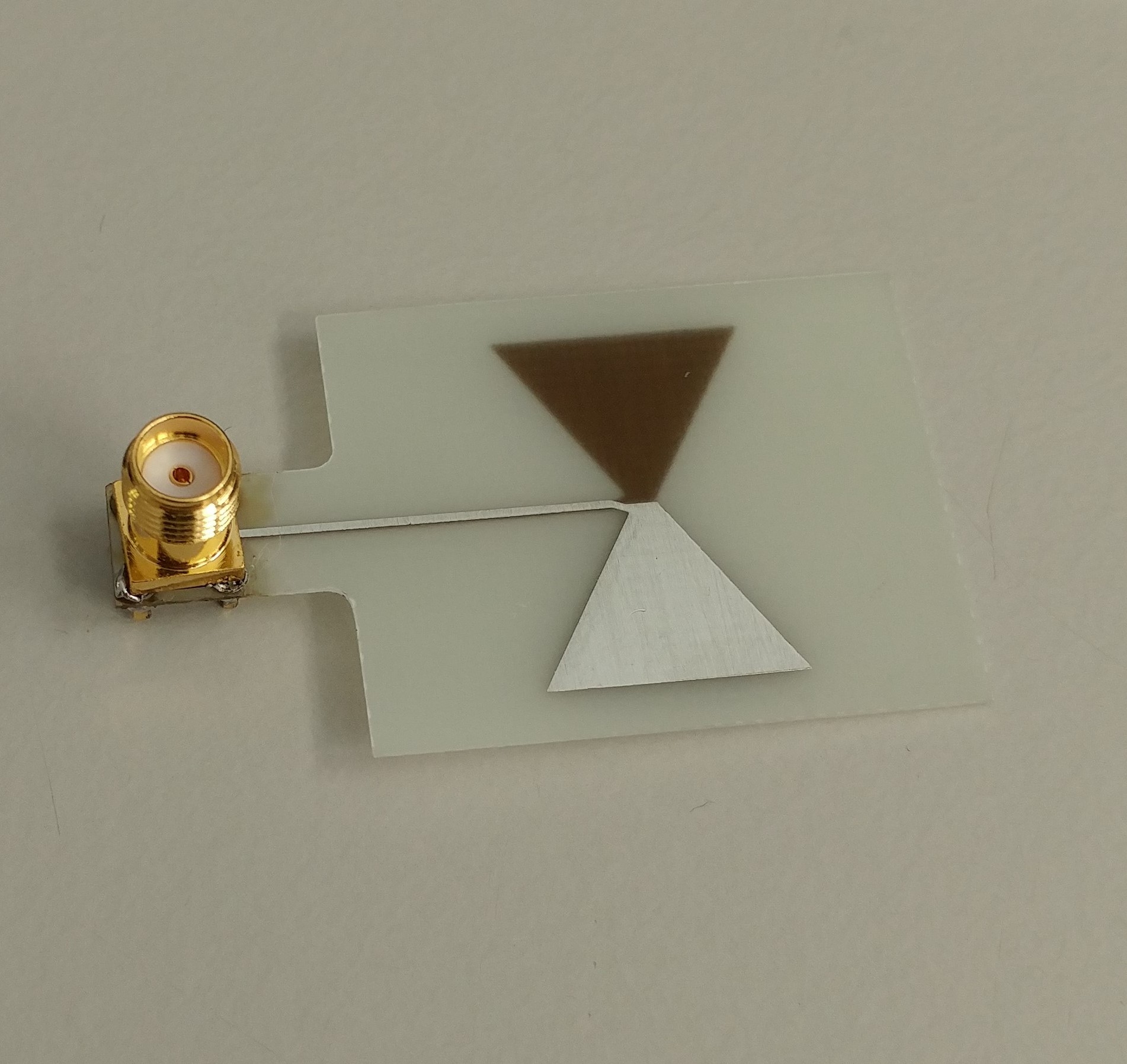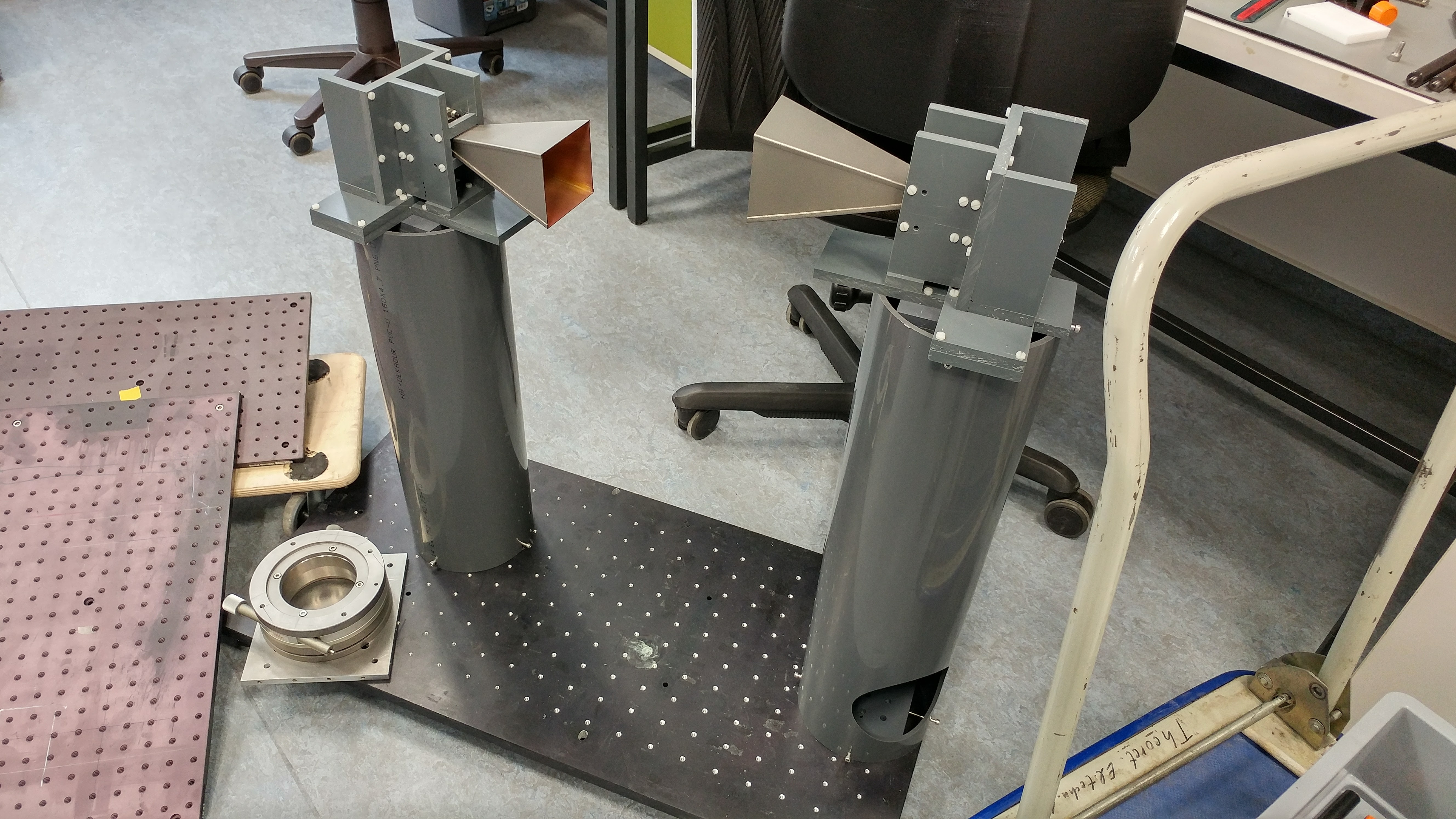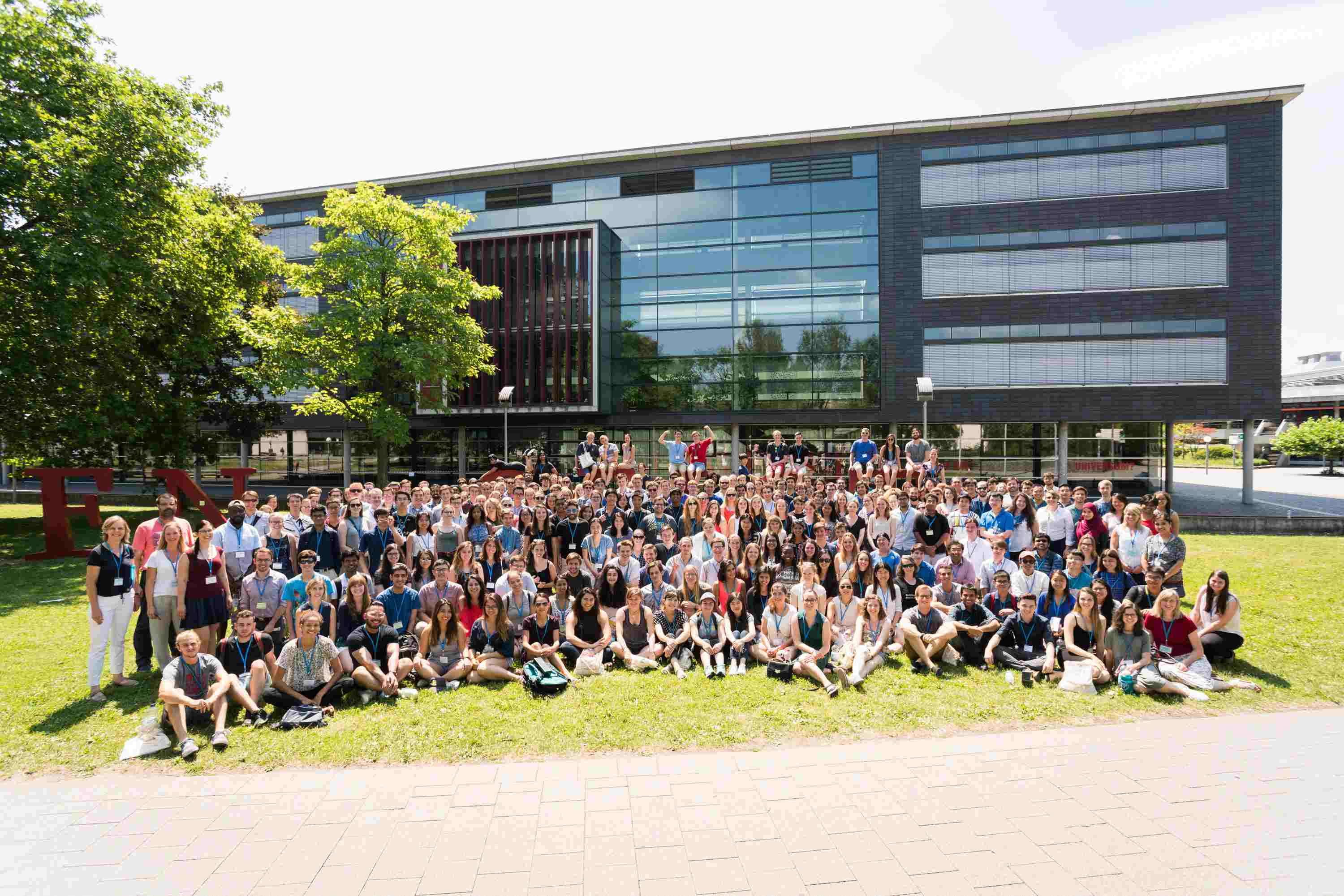Project
I spent my summer working with Professor Marco Rahm’s Metamaterial and Terahertz Technology research group at the Technical University of Kaiserslautern in Germany. I found this position through the DAAD RISE internship program. This program matches around 300 students from Canada, the US, and the UK with research positions at universities all over Germany.
The project I worked on focused on the development of microwave antennas that incorporated metamaterial structures. Microwave antennas are used in mobile communication devices, so creating efficient antennas with a small form factor is highly desirable in the construction of these devices. Over the course of the summer, I learned how to use CST simulation software to model and test various antenna designs. Starting with the basic antenna design that my Ph. D. student supervisor was working on, I optimized and further developed the design to have desired characteristics, such as a specific resonant frequency and minimal dimensions for the overall structure
I also had the chance to assist my Ph. D. student supervisor in the construction of a setup to measure the transmission and reflection characteristics of antennas and metamaterial structures. This involved machining and assembling parts to hold the samples and measurement devices in place, followed by programming instruments in Labview to automate the measurements. Once all this was done, I was also able to spend some time working in the clean room here, using photolithography to manufacture the antennas I had designed. My Ph. D. student supervisor plans on writing paper using some of the results of my work this summer, which I will be a coauthor of.

A fabricated antenna based on one of my designs

Part of the antenna measurement setup
Life in Germany
When I applied to the DAAD RISE program in December of 2016, I knew that it would doubtlessly be an interesting and valuable experience if I got accepted. What I could not have anticipated was just how amazing of an experience it would turn out to be.
The day to day atmosphere in the lab was great. There were eight graduate students in the group I worked in. Everyone in the group was very friendly and helpful. We all ate lunch together every day at the Mensa (cafeteria that serves the main meals during the day), and typically took a coffee break in the afternoon. During these times, we had casual conversations about all sorts of things including life there in Germany, life in Canada, and the latest episode of Game of Thrones (which is popular everywhere it seems).
Although everyone in the group spoke excellent English (especially compared to my German), conversations would often slide into German as I was usually the only non-native speaker around. I didn’t mind this at all though! It really encouraged me to work on my German language skills, which were very negligible to start with. I found hearing native speakers converse naturally extremely helpful, and my colleagues were always happy to translate parts of the conversation and words for me whenever I asked. By the end of the summer, I was usually able to follow the main idea of the conversations, and even participate in German a little bit.
Picking up some German made my time there a lot easier, and much more enjoyable. It was helpful to be able to read the signs on the streets and get by at the grocery store or a restaurant without having to use English.
I was also able to practice my German a bit more with my roommates over the summer. My supervisor helped me find a great place right in downtown Kaiserslautern. It was only a 15 minute ride to the university from the bus stop two minutes away from my front door. It was also only a few minutes’ walk to the nearest grocery store, and the old city where most of the restaurants and bars were located was not much farther. I shared the apartment with two people who lived and worked in the city. This is a pretty common living arrangement in Germany and most of the other students found similar places.
Kaiserslautern was a great city to be in for the summer. There is also a surprisingly large American population in and around Kaiserslautern, due to the NATO Ramstein Air Force base nearby. This makes English a little more common in this area than it otherwise would be. The university is quite big and there are also several research institutes next to the university. As a result, there were twelve DAAD RISE students in this city! This made sure there were always people to spend time with outside of work. Several of us often went to the quiz night at the local Irish pub, and travelled together on the weekends.
The location of Kaiserslautern is great for travelling. It is one of the larger cities in the area, so many trains and busses go through it. Some of my favourite weekend trips from Kaiserslautern were the 2.5 hour train ride to Paris on one of Deustche Bahn’s high speed ICE trains, and the 5 hour bus ride to Munich. There were several long weekends during the time I was working there, so that gave me some extra time to visit places.
Speaking of Munich, I was invited to attend an exhibition for laser and terahertz technologies with my research group there. That was a very cool experience. The professor in charge of my group had actually lived in Munich for several years, so he was quite familiar the city and he knew all the best places to eat and see. It was fun to get to spend some time with my research group outside of the university and get to know them a little better.
In Munich I was encouraged to try a traditional Bavarian dish called Schweinshaxe. It was delicious, but I have to say I preferred Saumagen, which is a Pfalzer (Kaiserslautern’s region) dish. If neither of these is your style though, you can’t go wrong with some Würste or some Schnitzel. And it has to of course be paired with some delicious German beer. I usually found the standard Pils very tasty, but a person who wants something that tastes a little bit less typical Canadian or American beer should try the Weißbier or one of the seasonal beers that most of the restaurants there serve.
All in all, this internship was a fantastic experience that I will remember for the rest of my life. The experience I gained this summer will no doubt help me in my academic and professional career. I look forward to the travelling back to Germany someday; definitely for personal travel and perhaps even to work or study!

Group Photo of all the DAAD RISE 2017 participants during the meeting in Heidelberg